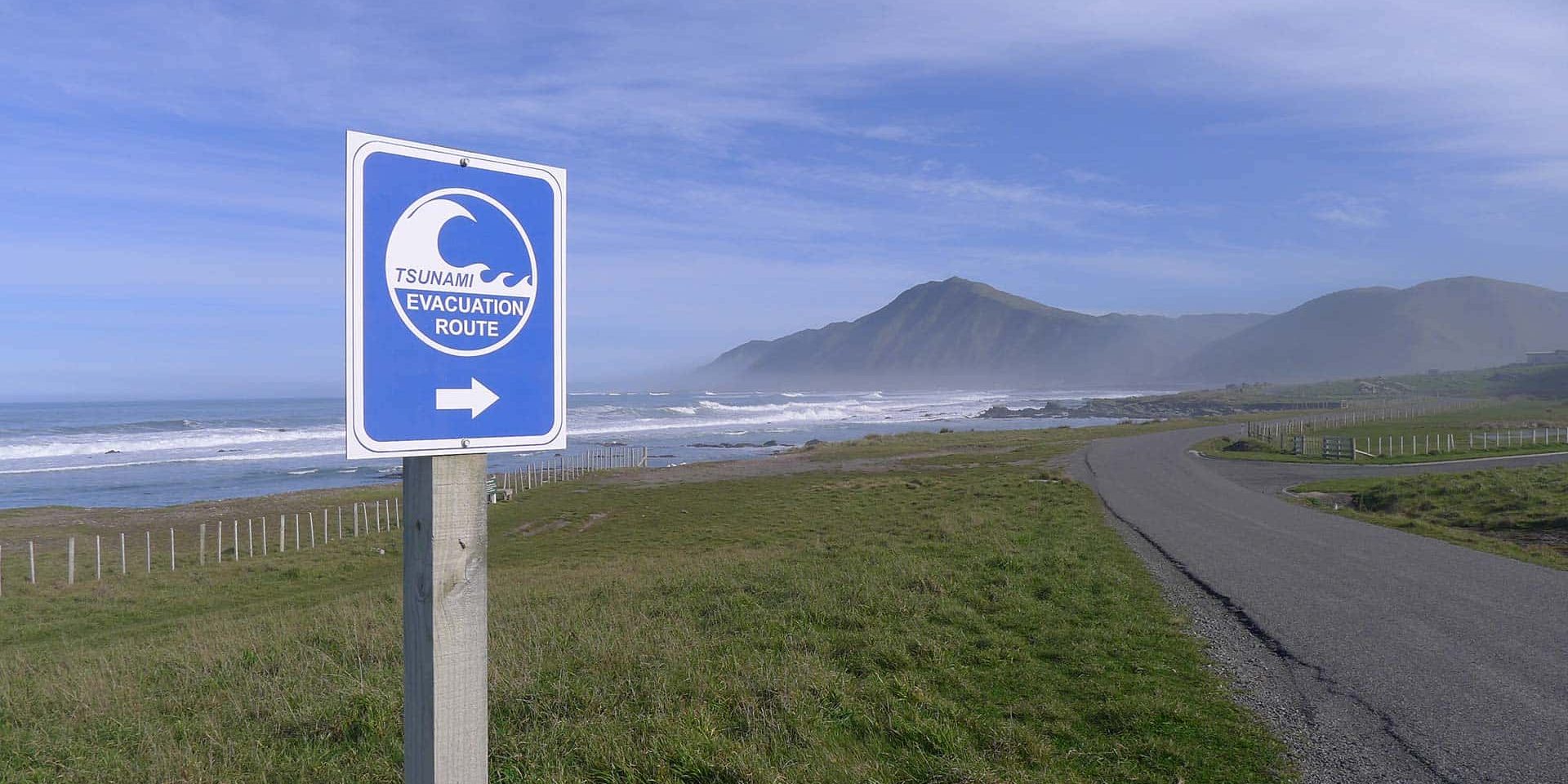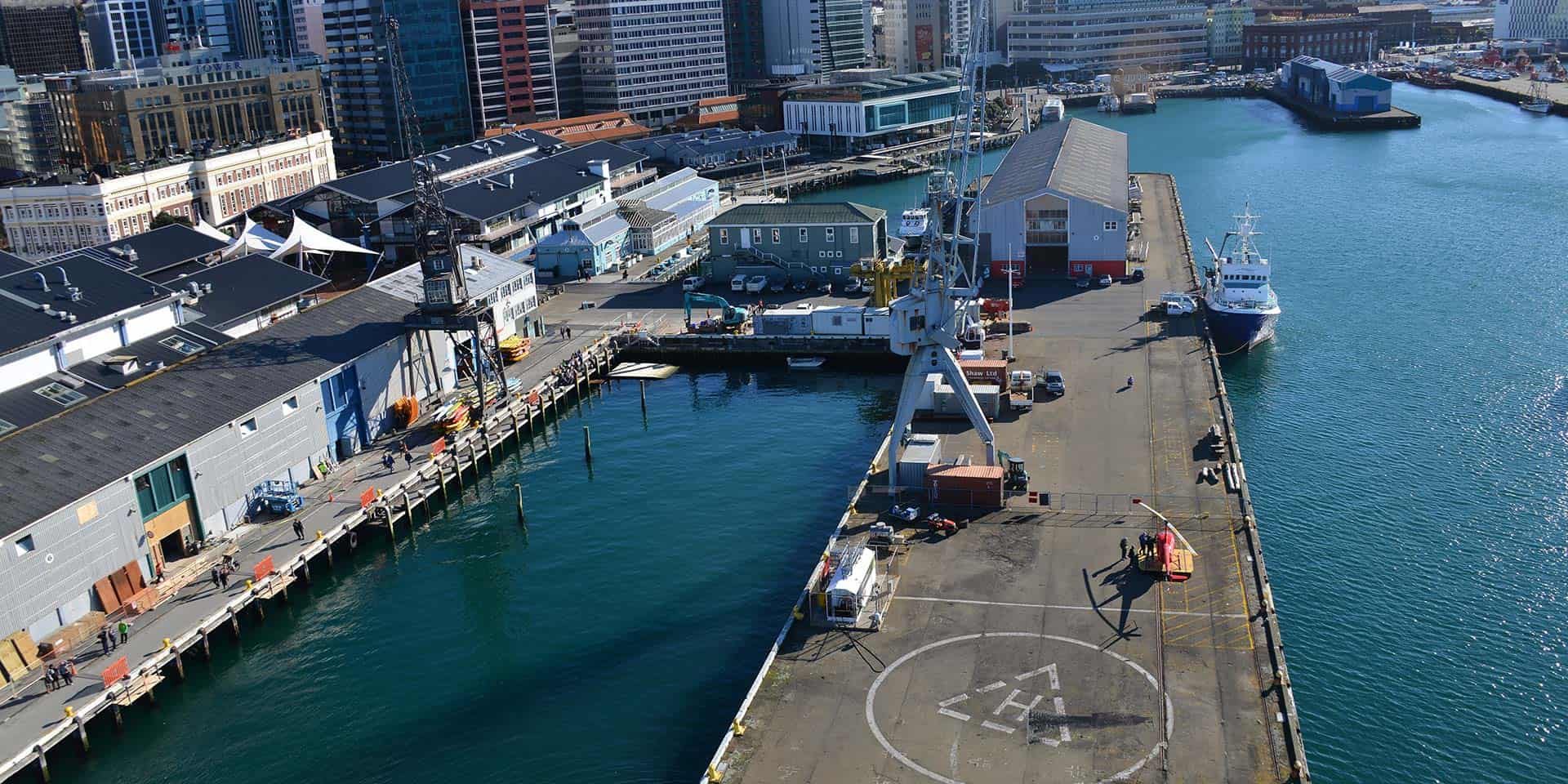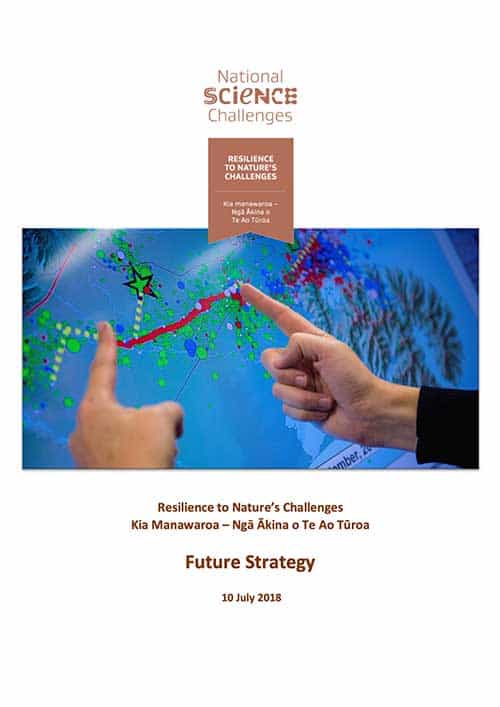Our Strategy
Phase 1 Strategy
Phase 1 of the Resilience Challenge ran from 2014-2019, with ten research programmes that sought to tackle key challenges in natural hazard resilience, and which were complementary to the existing Natural Hazards Research Platform.
Phase 2 Strategy
In Phase 2 (2019-2024) we have organised our work around two central themes that address the National Disaster Resilience Strategy and harness the combined research strengths of Phase 1 of the Resilience Challenge and the Natural Hazard Research Platform.
Our Future Strategy for Phase 2, developed with stakeholders in 2017-2018, set out our objectives under ten programmes, grouped in two main themes:

Multi-hazard Risk
The Multi-hazard Risk theme comprises new modelling to advance our understanding of natural hazards (such as earthquakes and tsunami, volcanoes, coastal hazards, high impact weather, and wildfires).

Resilience in Practice
The Resilience in Practice theme comprises mātauranga Māori, social science, and engineering research to develop policies, tools and methods to ensure new resilience knowledge becomes part of daily decision making in Aotearoa New Zealand.
Our Future Strategy (2018)
6.0MB | Adobe Acrobat PDF file
Our ten research programmes continue to evolve and adapt. The details of current areas of focus and our active and completed projects can be found on each programme page.
Since the development of our Future Strategy, we have adapted some of the language used to describe our research. You’ll find our Multi-hazard Risk theme now labelled Understanding Hazard and Risk. The Resilience in Practice theme is now grouped under the title Accelerating Resilience.
Our Resilience in Practice research programme is now labelled more descriptively Resilience, Policy and Governance. Our dedicated mātauranga Māori and kaupapa Māori programme is now known as Whanake te Kura I Tawhiti Nui.
Our Engagement Approach
 National Science Challenges were established around complex issues which require broad, effective engagement involving a wide range of partners and stakeholders. Central to what it means to be a National Science Challenge is working collaboratively across the science system and with users of the research to achieve the Challenge mission.
National Science Challenges were established around complex issues which require broad, effective engagement involving a wide range of partners and stakeholders. Central to what it means to be a National Science Challenge is working collaboratively across the science system and with users of the research to achieve the Challenge mission.
Why we engage
- To build connections and enduring relationships with the users of our research and other stakeholders
- To ensure we understand the needs of the users of our research, and
- To nurture partnerships that enable accelerated uptake of our research.
Our Engagement Goals
- Support our ability to deliver the shorter and longer-term outcomes of the Resilience Challenge for Aotearoa by embedding engagement in each of our ten research programmes
- Make it easy for research users to participate in research planning and delivery in ways that work for them
- Ensure engagement and partnership activities are effective, and we are working with the right groups, at the right time, in the right way
- Ensure that engagement and partnership activities are well coordinated across the ten Challenge Programmes and with other parts of the hazard and resilience science system
- Enable new opportunities to be identified, assessed and prioritised
- Build awareness and grow engagement with the Resilience Challenge
Our Engagement Principles
We embed engagement at the project and programme level
 Our engagement is user-centred, meaning we tailor our engagement to the context and in culturally-appropriate ways
Our engagement is user-centred, meaning we tailor our engagement to the context and in culturally-appropriate ways- Our engagement aims to be mana-enhancing, meaning that it is built on reciprocity and uplifts and benefits all involved
- We share knowledge in ways that facilitate understanding and learning
- We adapt and respond to emerging needs, where we can
- Our engagement is planned and purposeful
- We seek to build partnerships based on mutual understanding and trust and collaborate with others who share our engagement goals
- We use our tangata whenua engagement strategy to uphold tikanga when working with iwi and hapū

 Our engagement is user-centred, meaning we tailor our engagement to the context and in culturally-appropriate ways
Our engagement is user-centred, meaning we tailor our engagement to the context and in culturally-appropriate ways